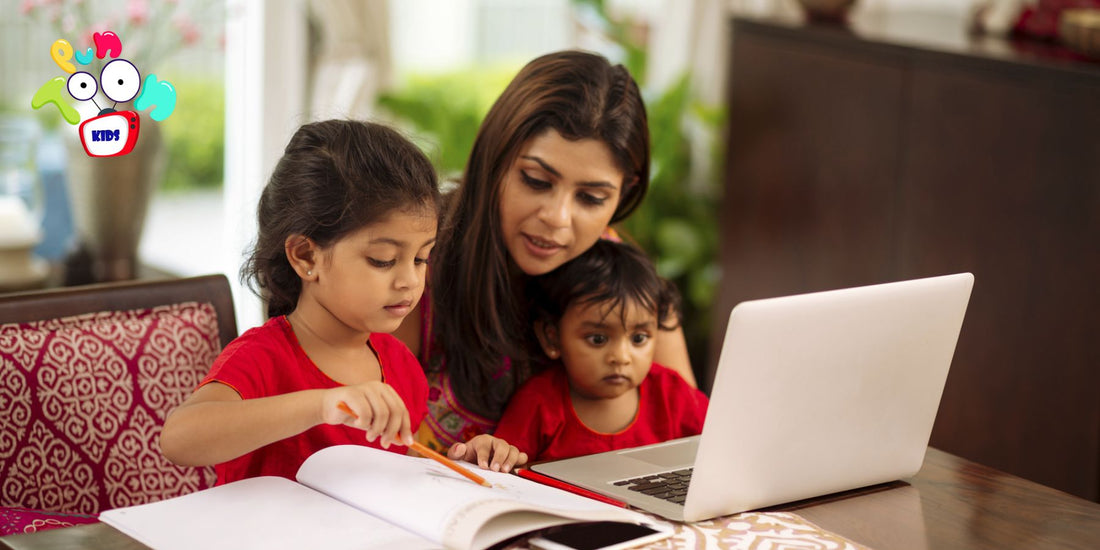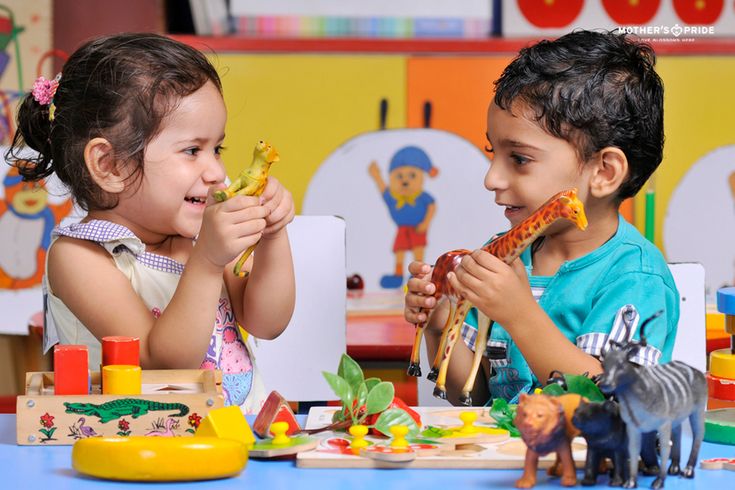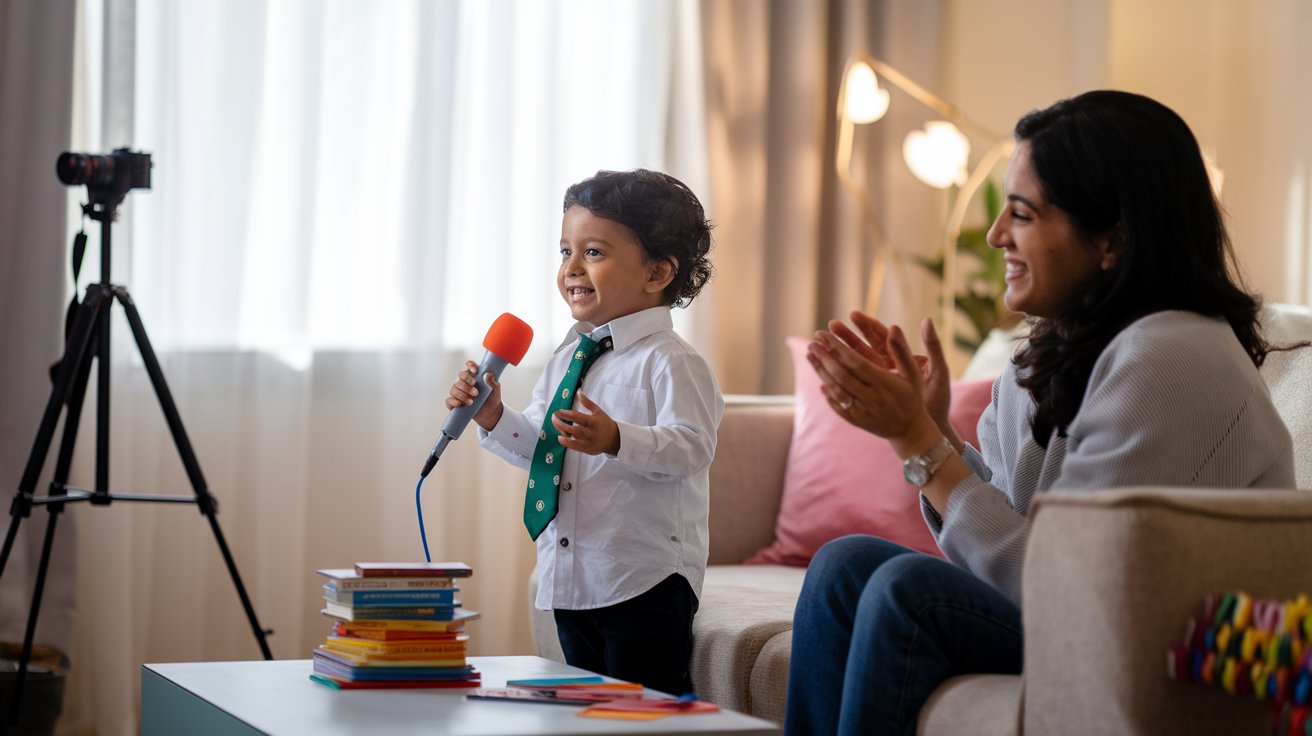Worried 'bout young kid's language development? Don't fret! Here's 6 expert tips to guarantee success. Emphasize speech sounds and stimulate language growth with stories! You can help your little one learn better!
Talk to your child often:
Engage in conversations with your child throughout the day, using simple language and short sentences. Encourage your child to respond, and listen actively to what they have to say.
Talking to young kids is important for language development. Use simple words, and encourage responses by asking open-ended questions. Listen actively and pay attention. Repeat or rephrase what they say, and read books aloud. Quality conversations are better than lengthy ones.
Pro Tip: Follow your child's lead during playtime to help the conversation flow naturally. This'll keep 'em engaged and interested. Nothing like a good book to make your kid smarter and a bit spooked by talking animals.
Read books together:
Reading is a great way to expand your child's vocabulary and develop their language skills. Choose age-appropriate books and ask your child questions about the story to encourage comprehension.
Reading is an important activity to help with language development in kids! Here are some tips to make the most of reading time:
- Pick books that match your child's age, interests and ability.
- Read together, taking turns and discussing the story.
- Ask questions to encourage comprehension and thinking.
- Point out new words and explain their meaning.
- Use different voices for characters to make it fun!
Remember, reading is not only about decoding words. It is also about understanding and enjoying the story. Take pauses for discussion and reflection.
Reading can be incorporated into daily life. Try reading a story every night before bed or take a book with you when running errands.
In olden days, stories were passed down verbally. They were full of adventure, love, and loss - all expressed through language. We still do this today by sharing stories with our kids. This helps them develop language skills and strengthens the bond between us. Have fun with your little ones and their language development with word games like rhyming and alliteration!
Play word games:
Word games such as rhyming, alliteration, and tongue twisters are fun ways to build phonemic awareness and improve language skills.
Word games can help kids develop language skills and phonemic awareness. Fun activities like rhyming, alliteration and tongue twisters can teach kids valuable communication skills. Here are some ideas to try:
- Rhyme words together.
- Create alliteration sentences.
- Say tongue twisters quickly.
These activities are engaging for kids and give parents a chance to bond. Also, read books out loud to kids to help them learn new words. Language development takes time, so be patient and keep using fun activities. Exposure to different languages may even help your child become a polyglot prodigy!
Expose your child to different languages:
Research shows that bilingualism can have cognitive benefits for children, and even exposure to different languages can help improve language skills.
Introducing young children to different languages has tremendous benefits on their cognitive development. Studies have demonstrated that bilingualism can improve language skills and cognitive abilities. Even if your child isn't fully bilingual, exposure to multiple languages can still widen their vocabulary and enhance their language skills.
Here are some expert tips to promote language development:
- Start by teaching your child basic words in various languages. For instance, teach them to say hello or goodbye in Spanish, French, or Chinese.
- Read books with your child that have been translated into multiple languages. This will help your child become familiar with the sounds and rhythms of other languages.
- Encourage your child to watch educational shows and videos in varying languages.
- Enroll your child in language classes or cultural activities that introduce them to different cultures and traditions.
- Play language games with your child; it makes learning more fun and interactive!
- Integrate new words from different languages into daily conversations to keep up the learning momentum.
Famous musicians such as Mozart and Beethoven were also skilled polyglots who spoke many languages fluently! Starting from an early age, exposing children to a range of dialects gives them a head start in mastering communication skills. Giving them a base of assorted linguistic tools ensures the flexibility needed for a growing mind's perspective on linguistics, sharpening adaptability while creating tools that are essential for future knowledge growth! Help your child become the superhero of their own language development story with imaginative play.
Encourage imaginative play:
Imaginative play, such as playing house or pretending to be a superhero, provides opportunities for your child to use their language skills in a creative and expressive way.
Imaginative play is a great way to help children express themselves and learn language skills. Pretending to be a superhero or playing house, for example, allows them to adopt different roles and explore how to use language. They can practice using different tenses, new words, and even how to negotiate with others.
To promote imaginative play, parents can set up imaginary scenarios and provide props that spark creativity and discussion. Joining in on the game is a great way to model speech patterns and build upon topics. Also, creating an atmosphere where mistakes are okay and learning is encouraged is important. Letting kids lead the way and respecting their ideas is essential.
In addition to imaginative play, it's also beneficial to supplement the activity with other approaches such as reading aloud and providing opportunities for conversations. Use open-ended questions and allow for long responses to help children practice using complete sentences and perfect their communication skills.
Pro Tip: Consistency is key to help young learners build good habits and self-confidence. So, reduce screen time and focus on playtime!
Limit screen time:
Too much screen time can interfere with language development, so limit your child's exposure to screens and encourage other forms of play and interaction.
Young children need language development, and screen time can be a hindrance. To limit exposure and foster other forms of interaction:
- Set limits. Have a schedule and stick to it. 30 minutes or an hour a day.
- Create no-screen zones. For instance: dinner table and before bed.
- Encourage playtime, board games, books, etc.
- Be a role model. Keep your own screen time minimal when around your child.
More steps to take:
- Speak clearly and slowly. Use simple words and vary your tone and pitch.
- Include music. Sing songs and use rhymes for different sounds and rhythms.
An example: one mother reduced her toddler's screen time and encouraged toys instead. In a few weeks, improvements in speech - new words and sentences.









